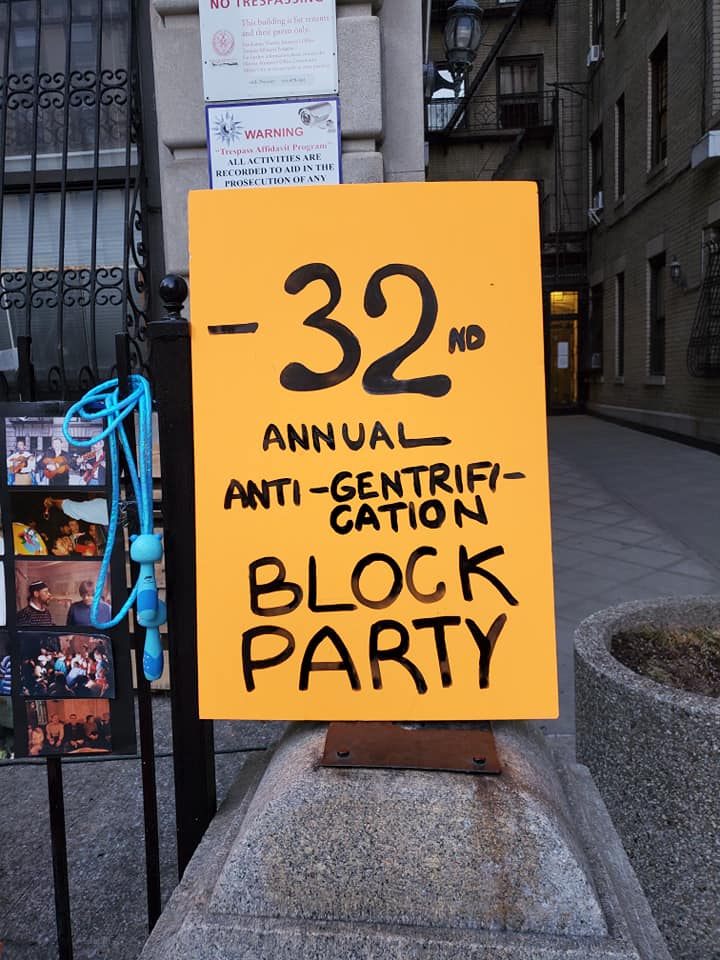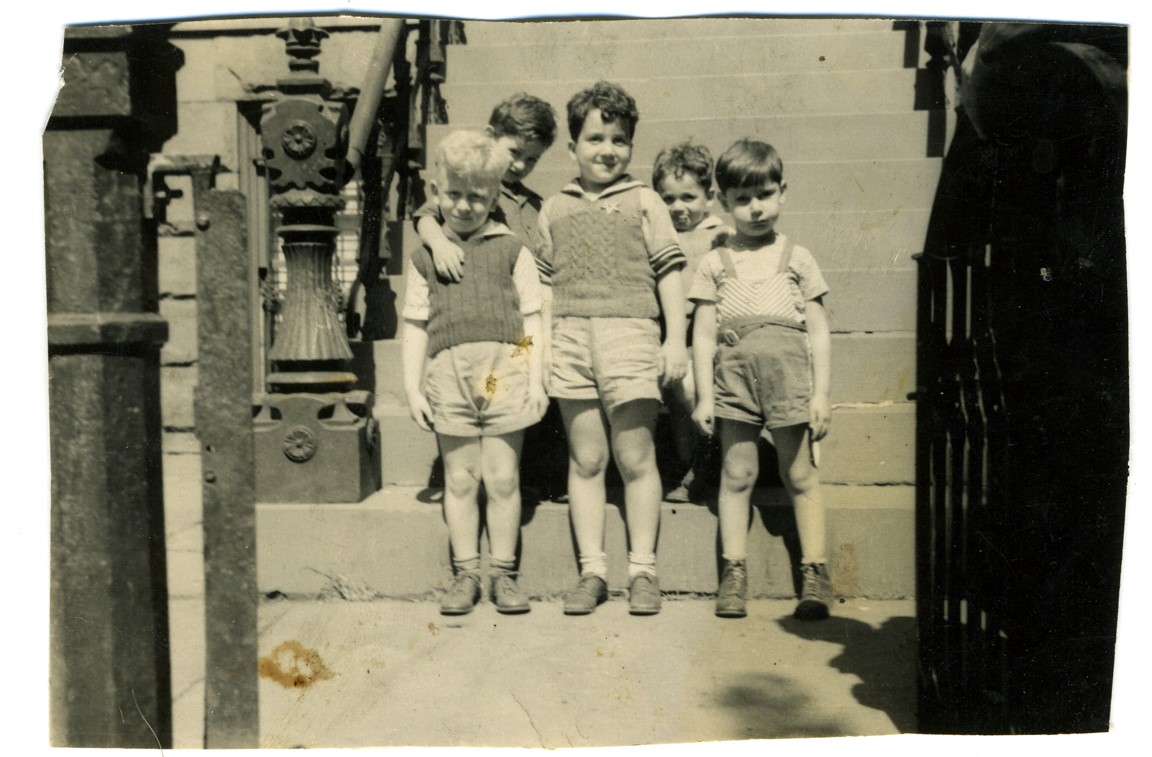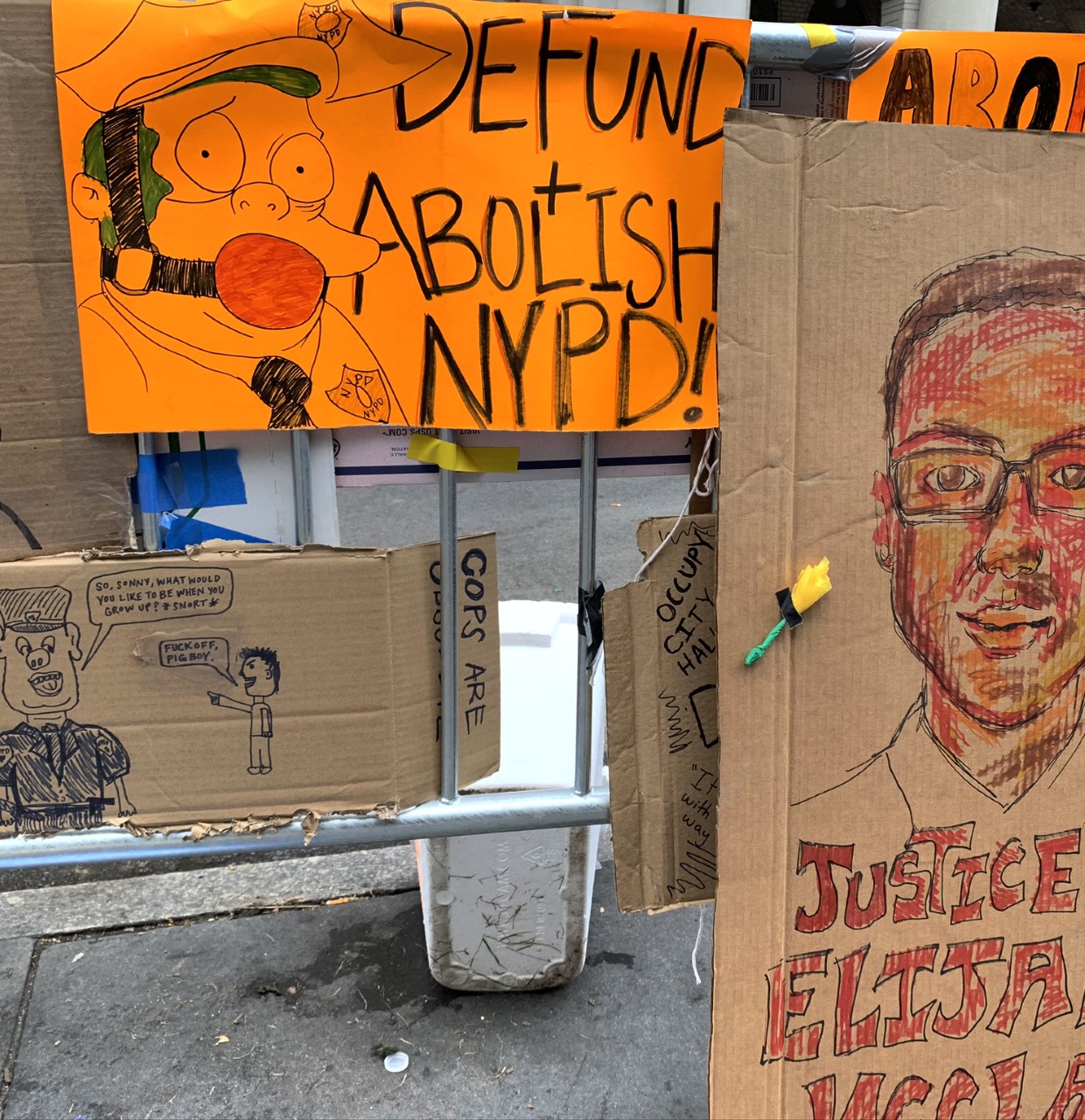
New York City
A Life in Struggle: Felicitas Magdaleno R.I.P.
It is with deep sadness and pain in our hearts that Movement for Justice in El Barrio mourns the passing of our beloved long-time member leader, Felicitas Magdaleno.
First Day Out (A Blue Sky Day Turns Grey)
Like a lot of New Yorkers, I’m missing the outside.
Sociology of Coronavirus by the Sea
It’s a sociologist’s brilliant, brutal dream to witness societal shifts of this magnitude; we see the good, the bad and the ugly, unfiltered.
Days of Beer and Daisies (Meltzer Remembers Nick Tosches)
Free Kicks vs. Pay-To-Play
Summer weekend in Riverside Park, the breeze coming in from the Hudson, the sun eased by the full trees arching above, and a soccer ball darting across a field. Sometimes gently caressed by the feet of the players, sometimes forced up in the air and sometimes played on the ground. The game mixes teen players, younger kids, with a couple adults. It’s fierce. Flying tackles and powerful shots rule. But just as everyone is feeling the flow, as positions are settling and the right footed players are moving to the left wing, it’s interrupted…
Riverside Park is home to the NYC soccer scene. Players from across the city, country and world race down to the soccer fields on 108th, 103rd, and 101st Streets. During the summer, once the midday heat passes, the fields are almost always full of futbolistas. Players are quick to make teams, normally shirts and skins, and within minutes a game has begun.
Each match at Riverside is different. There are pickup games where most participants don’t know each other. These games normally happen at 108th. At 103rd the best and bravest players go at it. Older teens, college-age athletes and middle aged vets compete hard in this game. At 101st, a group of much older folks gather on weekend evenings. This game is organized by the notorious Jerry, who sends out detailed email notices memorializing each weekend’s games. Jerry can be a curmudgeon, but all these games are open to all. You don’t even have to speak the language.
A flurry of different ones can be heard during games. From “andale” and “aqui” to “allez” and “pasar,” the advice from teammates is rarely in English. When foreigners join games, they tend to try to communicate in English at first but eventually return to the comfort of first languages. Tourists and emigres change up games and playing styles. Belgians speaking French, German, and Dutch all at once; Brazilians, dribbling so much it’s hard to tell they’re on a team; or Brits whose harsh accents (and harsh tackles) amp up competitiveness.
On the weekend the best pickup games normally last until the sun has set and the fireflies take to the field. But too often, pickup on the various fields is shutdown early. Groups of players, made up of either the unskilled and inexperienced, or older guys long past their prime, buy up permits for whole fields. These groups exclude much larger sets of players and quash better games. The players with permits/dollars push out younger people who can’t afford to pay for fields and take a less formal (though not less serious) approach to their sport. Pay to play ruins more organic, spontaneous games.
NYC Parks should serve as places that are free from New York’s obsession with money. Ads seem to define every street (and every MTA bus or train station). Money makes the city a tease and exclusory at the same time. Except in the parks where there are open fields, gardens, reservoirs, and pathways through woods—places where people aren’t defined by their bank accounts. When money comes into a natural environment (even if the fields are astro turf) things get bent.
Just last week the Times reported on “the gentrification of the interior west” where new billionaires have bought grand swatches of Idaho and Colorado, Montana and New Mexico. They’ve enclosed roads and lands there that had once been open to the public (though one pair of new landowners, the Wilkes brothers, have offered to let neighbors pass through their property if they’ll confirm they read the right reactionary websites).
My local experiences of “enclosure” on the Upper West Side seem paltry compared to what’s going on out West, but it’s clear that public space is under attack in New York too. I don’t have a clue about how to stop massive land grabs in the West, but fighting for a ban on privatizing soccer fields in Riverside Park should be doable.
After Action Report & Alliance Memories
“Tom ate trouble for desert.” That was Sarah Martin—former head of the Grant Houses’ tenant association—lauding her late comrade Tom DeMott at his Memorial, which was held at St. Mary’s Church in Harlem on December 1rst.
On the Block II: Excerpt from Gilbert Sorrentino’s “Crystal Vision”
What follows is a swatch of Crystal Vision (1981)–a novel of almost pure dialogue by the late Gilbert Sorrentino.
Our Developer President: A Dialogue Between Samuel Stein and Rachel Weber on Real Estate, Cities, and Trumpery
There’s a certain kind of person who sees real estate everywhere they look — someone who walks around a city and thinks not just, “who lives here?” but “who owns this, who’d they buy it from, and where’d they get the money?” Some think this way because they’re in the property racket, or hope one day to be. Others with this mentality are just perpetually pissed off at the ways land and housing have been hyper-commoditized, turning cities into luxury products. We are definitely in the latter camp, and as such have quite a bit to obsess over these days. The following dialogue, between two urban planners and property scholars (one in New York City and one in Chicago), ruminates on the meaning of the Trump presidency and the relationship between property development and governance.
Women’s March in NYC
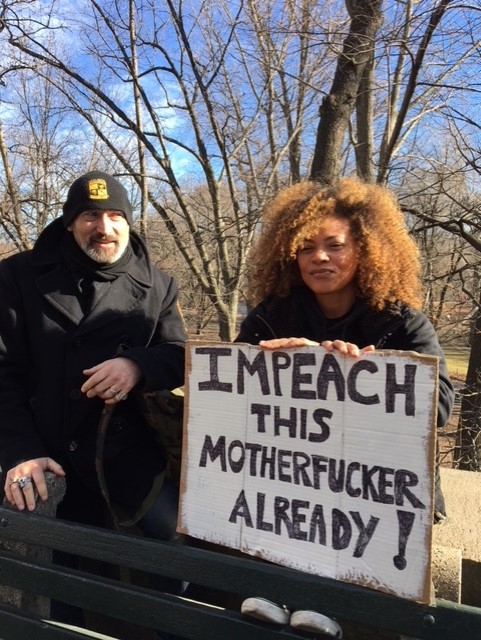
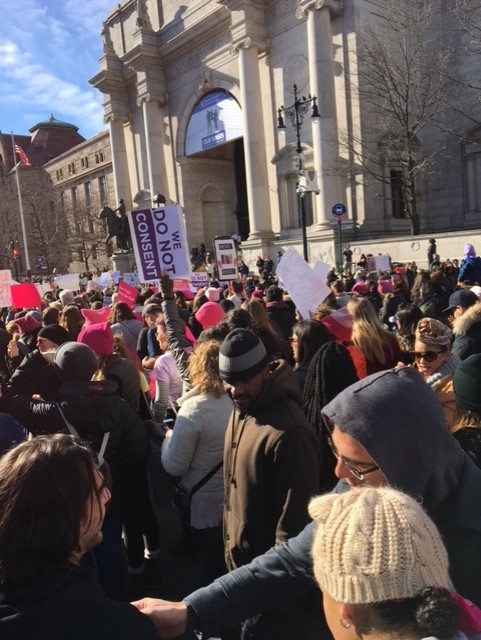
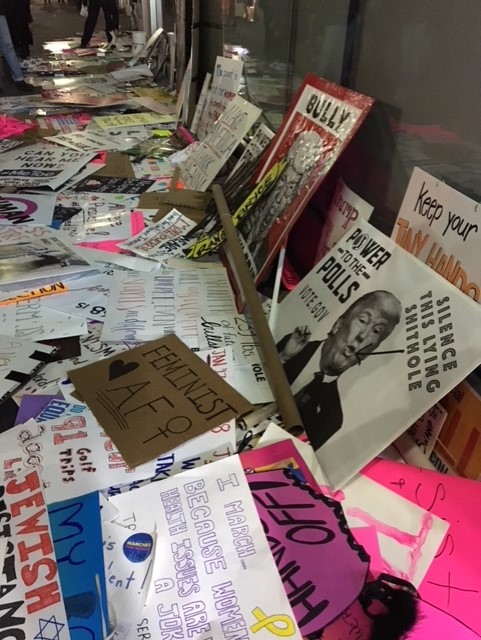
My friend was holding a coffee from Joe’s. It was noon. I said I wanted coffee from the $2 place. We were on Columbus and 86th Street, heading for the march.
The Red Impala
Nunez, Calderon, and Luis (that’s me), we found an old Chevy Impala, a real big one from the Fifties. It was in the sandbox in front of the kids’ playground next to the project in which we lived. Calderon is very smart. He got a job selling bets at OTB, and we really trusted his judgment. “Nunez, Luis,” he said, “the car has no plates on it. The radio and battery are gone. It is safe to assume that it is abandoned.”


